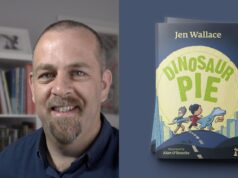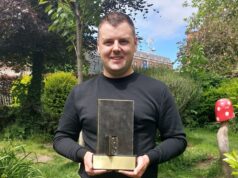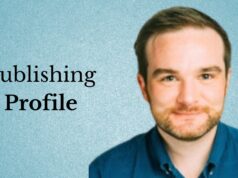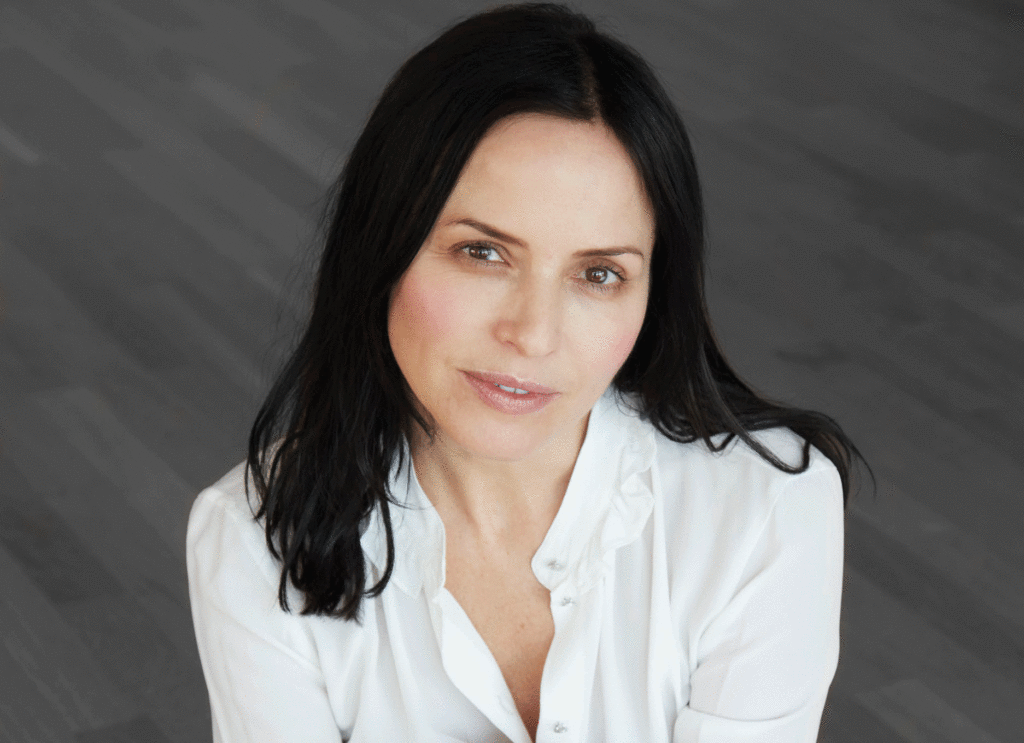
Andrea Corr talks to Mary McCarthy
In her easy-to-read memoir Andrea Corr is funny, quick with a quip and happy to make fun of herself. I don’t know why this came as a surprise to me. The Corrs, amidst their huge musical success, have always come across as likable. Maybe their beauty (the female band members anyway!) tricked me into thinking they may not have had to draw on other resources—like the humour and insight in this book.
Barefoot Pilgrimage begins with Andrea’s first memory aged seven when she was hiding from her sister Caroline while reading Hans Christian Anderson’s ‘The Wild Swans’; but the hiding ends here. She does not conceal much—directly addressing the reader and opening up for us to feel that sense of common humanity and how she, like everyone, has had crosses to bear.
Feeling afloat
The Corrs, from County Louth, are made up of four siblings and formed in 1990. To date they remain one of Ireland’s bestselling musical exports. They had reunited after a ten year hiatus when their father died in 2015. When Andrea started writing her memoir in 2017 she was still feeling untethered and overcome with an urge to pin their story onto paper—to capture their past, to tie its threads together.
‘When both your parents go [her mother Jean died when Andrea was 25], there is this sense that once the next generation dies, then this life is gone. I was facing my own mortality and I wanted to engrave our story for myself and my family. Though no one knew I was writing it at this stage and I hardly knew myself,’ she tells me over the phone, her voice soft, with only a hint of the lilting Dundalk accent that is more pronounced when she sings.
There were no plans to publish; this came later when the Corrs’ manager, John Hughes—who is a big part of their story and features a lot in the book—read the first draft. At this point, the work was really a novella. Hughes encouraged Andrea to write more and to tell the extraordinary tale of the Corrs and how their parents had provided the soil for the flourishing of their success.
Many writers say they decide to pursue a piece of work after they get a vote of confidence from someone they trust; it is difficult to plug on without any outside validation, and Hughes’s opinion was important to Andrea.
‘John’s perspective, as it has always done, encouraged me into thinking I had written something good, something worth continuing,’ she tells me.
And it’s a very personal and entertaining account, with Andrea’s musings on the past and present interspersed and sprinkled with poetry—her father Gerry’s and her own—and photographs and love letters from her father to Jean. It is just as much the story of their relationship.
Lost in music
Fans will relish getting the inside track on the band’s journey, from late-night rehearsing (Andrea and Caroline in school uniforms) for gigs in their aunt’s pub, with lots of breaks for tea and Kimberly Mikados and Coconut Creams, right up to worldwide success. It’s a tale of a small-town start to global recognition and it’s interesting to read what it was like growing up in an Irish border town in the 1970s, despite their parents’ careful shielding.
Andrea and her siblings were immersed in music. Her parents were in a band and she learned from an early age the power of lyrics, of how a song can change how people are feeling in that moment.
‘I would spend hours every day in the “bumping chair” beside the stereo where you would “bump” to the beat of the music. I would act out the characters in the song and from a young age I was struck by the drama and power that song lyrics had. How a song could tell a story and how it could affect the listener so much. My parents never once asked me to stop or turn it down,’ she says.
Walking to release creativity
Realising Andrea can write well is not such a surprise—she has been penning bestselling songs for years. How did she go about this book? Was it harder to tackle something longer?
‘I do my best thinking while walking and I record these feelings as they come to me. I always begin any writing with a walk—for me it releases more free-flowing thoughts. Most of this book came about from me walking quickly and stopping to jot notes into my phone. Similar to how I would write lyrics. Later, I would go back and refine and draw them out,’ she says.
Once she got started she became quite ‘obsessed’ and memories—small details and pictures—came flooding back with such ease it was like she had ‘assistance from beyond’. She enjoyed the process, though it had its sorrows.
‘There were times [writing this book] I fell down the well of sad memories. But there was so much humour too to bring me back up,’ she says.
And while it was a very happy childhood, there was pain with the tragic death of her brother Gerard, who Andrea refers to as the ‘ghost in our machine’. I defy any reader, particularly one with an energetic three-year-old in their lives, not to be moved to tears reading this chapter. And later Andrea brushes on her own rocky road to motherhood and how she almost died giving birth to her daughter Jeanie.
The road not taken
She touches on a moment when she considered college but the Corrs were on the cusp and the future was already mapped out.
‘If the Corrs had not happened I would have liked to study English. You can’t do everything in life; and I have no regrets, though I might still do it; nothing is ruled out,’ she says.
Books are a big part of her life and Andrea is a serious reader and makes space for reading every day. She may not have studied English literature but she has made inroads on the canon of works on any core syllabus off her own bat.
‘I read every day before the kids get up for school. I’ve just finished The Testaments by Margaret Atwood, which I enjoyed. Other favourite authors are Charles Dickens, Dostoyevsky, Charlotte Bronte, Joseph O’Connor …’ and she mentions greats from her own neck of the woods—John McGahern and Patrick McCabe.
Rabbit in the spotlight
In the book she describes how she did feel uncomfortable at times when her anxiety would make her face swell and come out in a rash—and she had to pretend a lot; though not when she was performing—she was absolutely fine then. There is no getting away from the fact that the Corrs were, and still are, very alluring to look at. Was this focus on their looks annoying? (As I ask, I realise I am continuing this irritating trend.)
‘When I started to do theatre acting some years ago I found the lack of vanity so liberating and writing is the same. It is hard for me to analyse myself but one thing I know is that I was uncomfortable with the celebrity aspect—being in the public eye. However, I am very comfortable once on stage, there is no pretence at all there for me.’
And she is not pretending in this book; you can’t help but warm to Andrea and she writes well and tells a great story in a fluid and engaging way.
She talks of her losses but also of how she has learned how grief can be viewed as an opportunity for gratitude that you loved, and were loved back, so much; and how we should appreciate the life we have left, to fight through the darkness and let poetry, music and books help us see the beauty in every day.
Andrea Corr’s memoir, Barefoot Pilgrimage, is out now.
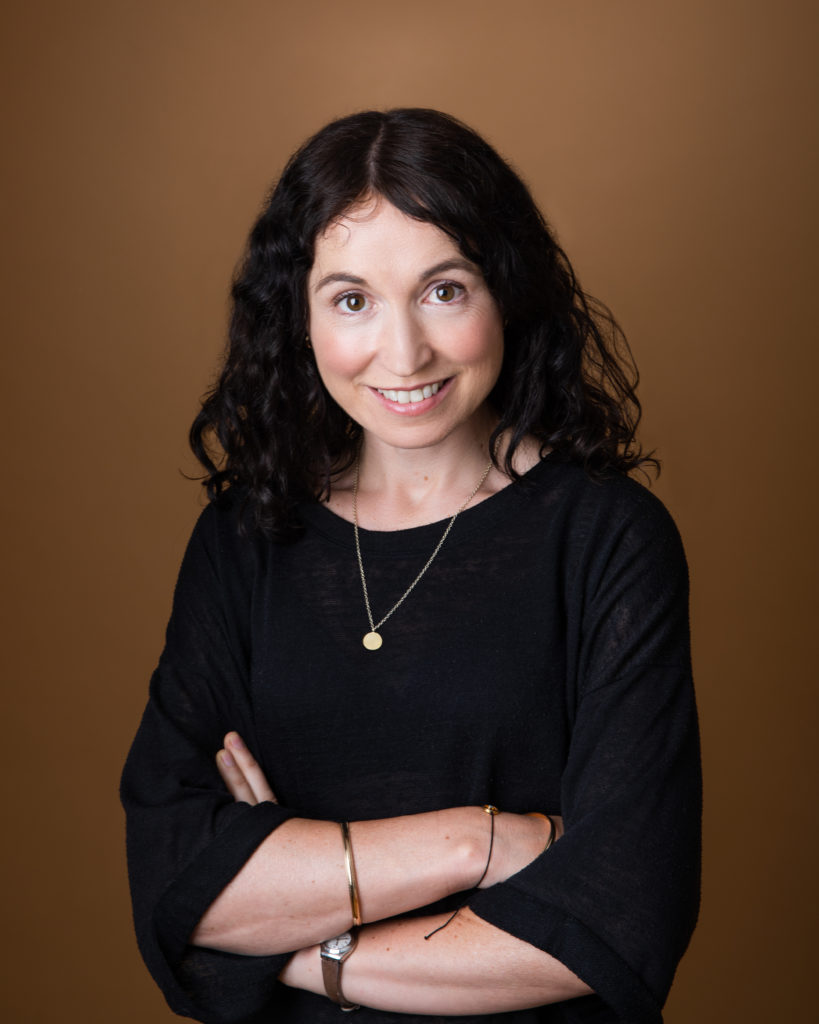
Mary McCarthy
Mary McCarthy is a freelance journalist writing for a number of publications. She is an avid reader and an iron-willed book club administrator. @maryknowsbees









